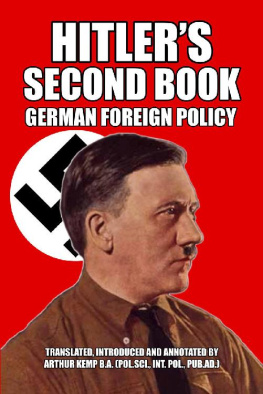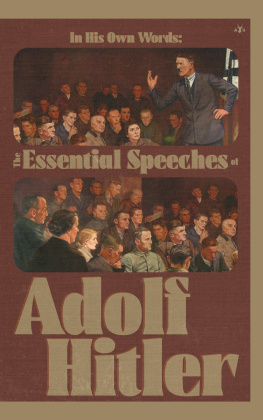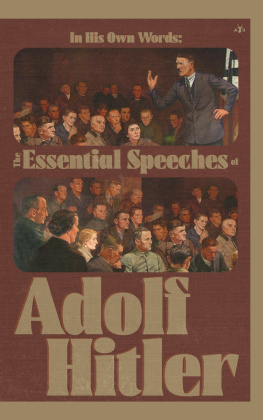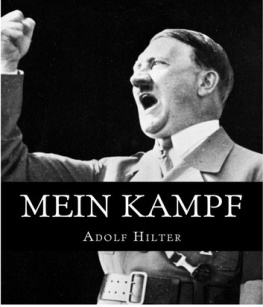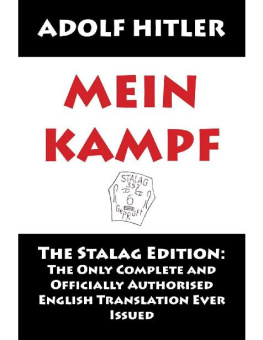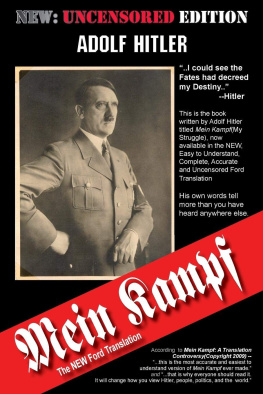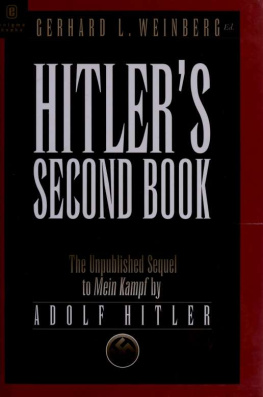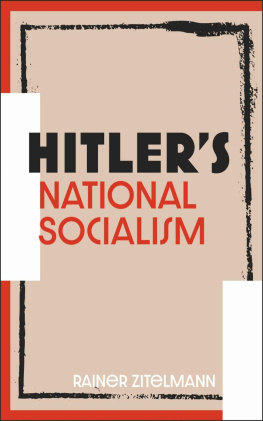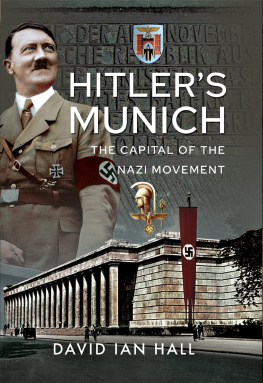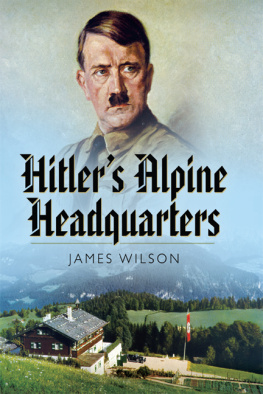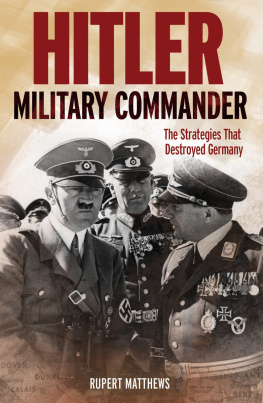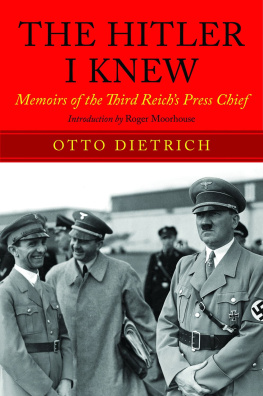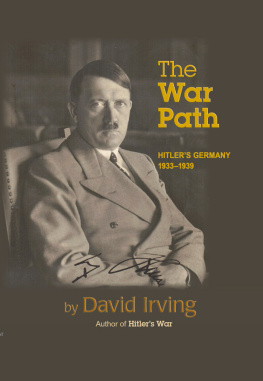Adolf Hitler - Hitler’s Second Book: German Foreign Policy
Here you can read online Adolf Hitler - Hitler’s Second Book: German Foreign Policy full text of the book (entire story) in english for free. Download pdf and epub, get meaning, cover and reviews about this ebook. year: 2014, publisher: Ostara Publications, genre: Science. Description of the work, (preface) as well as reviews are available. Best literature library LitArk.com created for fans of good reading and offers a wide selection of genres:
Romance novel
Science fiction
Adventure
Detective
Science
History
Home and family
Prose
Art
Politics
Computer
Non-fiction
Religion
Business
Children
Humor
Choose a favorite category and find really read worthwhile books. Enjoy immersion in the world of imagination, feel the emotions of the characters or learn something new for yourself, make an fascinating discovery.
- Book:Hitler’s Second Book: German Foreign Policy
- Author:
- Publisher:Ostara Publications
- Genre:
- Year:2014
- Rating:5 / 5
- Favourites:Add to favourites
- Your mark:
Hitler’s Second Book: German Foreign Policy: summary, description and annotation
We offer to read an annotation, description, summary or preface (depends on what the author of the book "Hitler’s Second Book: German Foreign Policy" wrote himself). If you haven't found the necessary information about the book — write in the comments, we will try to find it.
Dictated in 1928 to Max Annan, head of the NSDAPs publishing house, the unedited and draft manuscript, provisionally titled Deutsche Aussenpolitik but later more commonly known as Hitlers Second Book, was never published in Hitlers lifetime.
Originally written as a propaganda recruitment tool designed to generate support for the NSDAP at the time of what he saw as an artificial crisis in German nationalist circles over the Italian occupation of South Tyrol, Hitlers second book is of necessity dated with regard to some time-specific events.
Nonetheless, it contains much more than just a discussion of the South Tyrol issue. Within these pages, the reader will find the philosophical principles which underwrote National Socialist domestic and foreign policy, and a large number of astonishingly accurate and prescient foresights into many pressing international issues which still occupy the world stage in the twenty-first century.
Read Hitlers predictions on:
- The economic, social and racial problems posed by European unification;
- American immigration policy and its racial meaning;
- The need to temper foreign policy with realism;
- The threat posed by modern air warfare;
- The possibility that the Jewish Communists would lose power in the Soviet Union;
- The racial values which underpinned the British Empire;
- The negative influence of birth control upon European population growth;
- The eugenic danger of war in general;
- The threat which outsourcing to the Far East poses to Western economies; and
- The role of International Jewry in influencing world affairs and inciting conflict; amongst many other topics.
The philosophical principles which Hitler endorsedthat victory goes to the strong and the brave, and that the meek shall inherit nothingwere equally applicable to both domestic and foreign policy, two areas which he saw as irretrievably interlinked.
In general freedom is preserved neither by begging nor by cheating. And also not by work and industry but exclusively by struggle, and indeed by ones own struggle.
This accumulated hatred was discharged in the typically bourgeois-national fulmination and battle cry: God punish England. Since God is just as much on the side of the stronger and the more determined, as well as preferably on the side of those who are cleverer, He manifestly refused to inflict this punishment.
For this earth is not allotted to anyone, nor is it presented to anyone as a gift. It is awarded by Providence to people who in their hearts have the courage to take possession of conquering it, the strength to preserve it, and the industry to put it to the plough.
This edition contains the full text, translated from the German original, and includes the article How America entered the Warto which Hitler referred and intended to add to the manuscriptas an appendix.
Adolf Hitler: author's other books
Who wrote Hitler’s Second Book: German Foreign Policy? Find out the surname, the name of the author of the book and a list of all author's works by series.

